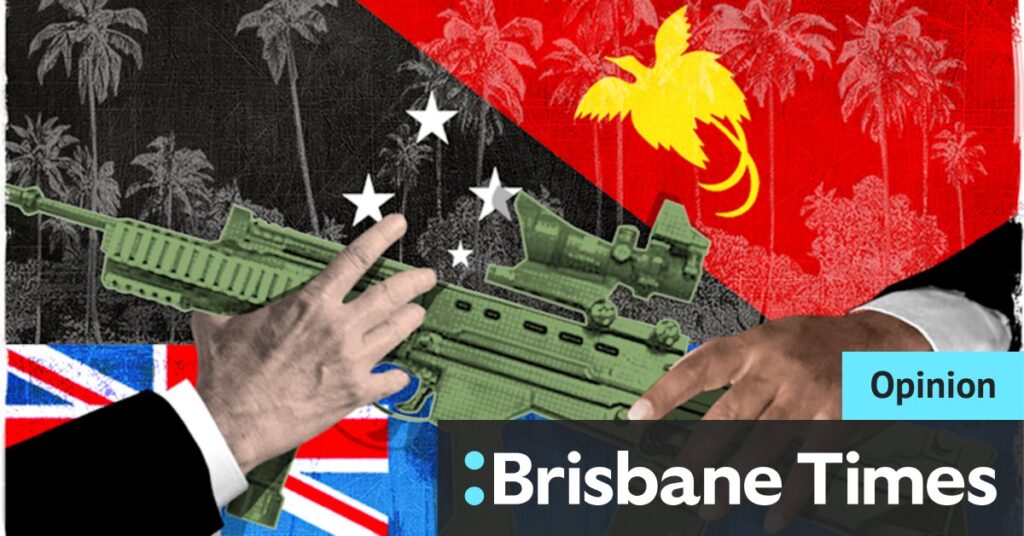
The first Australian military personnel member to die in World War I wasn’t killed in Gallipoli or Europe. Instead, Able Seaman Billy Williams lost his life on the island of New Britain, now part of Papua New Guinea, a German colony at the time. When war was declared, Australia’s immediate mission was to expel the Germans from New Guinea to prevent it from being used by Kaiser Wilhelm’s East Asia Squadron as a base to attack Australia or other parts of the British Empire.
Billy, a 28-year-old naval reservist from Melbourne, was part of an advance party tasked with capturing a German wireless station on the island. They succeeded, but at the cost of Billy’s life and the lives of five of his comrades in what became known as the Battle of Bita Paka. This early military action underscores the strategic importance of the Pacific region to Australia’s national security.
Historical Context and Strategic Importance
“Australians think of World War I, and they think of Gallipoli, the Western Front, the Light Horse,” says Peter Dean, a military historian and professor of strategic studies at the Australian National University. “But we were only able to send those forces overseas because our region was secure.”
The British defeated the retreating East German Squadron at the Battle of the Falklands three months after Billy’s death. According to Dean, Papua New Guinea has always been central to Australia’s and the region’s security as part of the gateway from Southeast Asia to the South Pacific.
“Our overriding interest since we were occupied by Europeans has been to make sure that no power in the Pacific that was not aligned with us could get a foothold in the Pacific,” explains Dean.
In colonial times, Australia was concerned about Russian influence, then German during World War I, Japanese in World War II, and now, Chinese ambitions.
Geopolitical Shifts and Modern Challenges
When the Japanese landed on the north coast of Papua during World War II, an Australian territory at the time, they aimed to capture Port Moresby by crossing the Owen Stanley Range on foot. With Australia under direct threat, Prime Minister John Curtin’s government overruled Winston Churchill and brought Australian troops back to the home theatre, demonstrating once again that Australia could only contribute to the security of allies elsewhere when its own security was assured.
Australia successfully blocked and defeated the Japanese on the Kokoda Trail, aided by the sacrifices of local Papuans, known affectionately as the Fuzzy Wuzzy Angels. After granting Papua New Guinea independence in 1975, Australia maintained its role as the largest donor of aid but largely treated PNG with benign neglect.
“And now,” says Dean, “once again, geopolitics comes to the Pacific. The long-term historical trend is not going anywhere.”
Australia’s Renewed Engagement with Papua New Guinea
Australian governments have been jolted from their historical indifference by China’s designs for regional dominance. If Beijing succeeds, China would sit astride “the pathway from Australia to its dominant security partner through Hawaii.” This is why Dean describes PNG and the South Pacific as “the front door to Australian security.”
The Albanese government has prioritized upgrading its political, aid, and security relationship with PNG, with a new defense agreement set to be unveiled this week. Australian Defence Minister Richard Marles stated, “PNG is obviously on our northern flank. It really matters that we have the very best relationship we can have with PNG in a security sense.”
According to PNG’s Defence Minister Billy Joseph, the agreement is to be a “mutual defence treaty.” He told the ABC, “We’re not talking about interoperability, we’re talking about totally integrated forces. Australian Defence Force and PNG Defence Force both working together closely, using the same equipment … fighting together, defending our sovereignties as an integrated force.”
Joseph said the treaty would contain a provision similar to NATO’s Article 4, which obliges signatories to consult if one feels its territorial integrity, political independence, or security is threatened.
Challenges and Future Prospects
Australia must tread carefully. “There are a lot of Australians here,” says Dame Meg Taylor, formerly secretary-general of the Pacific Islands Forum. “And everybody is increasing their activity, in aid, in defense, in police. How do we measure their impact? That’s the question.”
Dame Meg, who has long experience with Australians in her country, emphasizes the importance of recognizing PNG as an independent state and democracy. “Anything that happens in defense arrangements as the two countries come together, both have to recognize that you are entering a relationship between two sovereign states, one much stronger than the other. The weaker one cannot yield to the other. Because then it’s a constitutional issue.”
On PNG’s 50th anniversary, Dame Meg reflects on the challenges that remain, such as ethnic fighting, poor employment prospects, and governance issues. If Australia wants the treaty to endure and the relationship to flourish, it will need to help PNG solve its own problems, not just cater to Canberra’s concerns.






